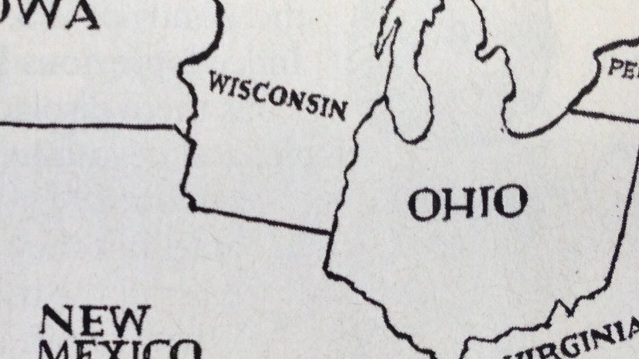Is It Time to Replace First-Past-The-Post Voting?

Has it ever bothered you when scouring election results that so many candidates are declared winners despite the fact that most people didn’t vote for them? This is a result of our first-past-the-post voting system, the subject of scorn in a recent LA Times op-ed by the mathematician Matt Parker. Most American elections (and nearly all federal elections) require that the winner be the candidate who receives the most votes rather than than the majority. This system leads to vote-splitting, as well as the quashing of any hope for third party candidates:
“This means that if you vote for a smaller party, then you are effectively throwing your vote away. Unless the party you are voting for has a shot at winning the most votes, then the reality is your vote won’t count. This makes it nearly impossible for independents and new parties to get a foothold — and results in the two-party system that has dominated U.S. politics for decades.”
Worst of all is the chance of something called “the spoiler effect,” which causes the aforementioned split-votes. Let’s assume, for example, that Candidates A and B are the frontrunners in a major election. Also running is Candidate C, who is more similar to Candidate A and very different from Candidate B. Voters whose beliefs fall in line with Candidates A and C would never support Candidate B. Yet those voters have to decide whom to vote for out of two relatively similar candidates. On election day, here are the results:
Candidate A: 35%
Candidate B: 40%
Candidate C: 25%
Candidate B would therefore be declared the winner because he/she earned more votes than anyone else. But not only did 60% of voters not support Candidate B, he/she probably wouldn’t have been many of their second choice.
The great Youtube explainer-of-all-things CGP Grey has a terrific video further illustrating the faults of first-past-the-post voting:
Both CGP Grey and Matt Parker advocate for the adoption of a ranked ballot (or “alternative vote”). This system would allow voters to rank candidates by preference. If no candidate has a majority once votes are counted, an instant run-off begins where votes from the candidate who finished last are reallocated based on those voters’ second choices. This process continues until one candidate has earned a majority.
Let’s go back to our example above to demonstrate how this ballot works. Remember that our voting results had Candidate B winning a plurality with Candidates A & C splitting. Under first-past-the-post, Candidate B is the victor. On a ranked ballot, Candidate B’s inability to achieve a majority means that Candidate C (who finished last) has his/her votes reallocated to the voters’ second choice. If everyone who voted Candidate C put Candidate A as their back-up, the election results would look like this:
Candidate A: 60%
Candidate B: 40%
Candidate C: Elim.
Not only do these election results better reflect voters’ preferences, this system allows for supporters of the third party candidate to have their vote count for something. Again, CGP Grey finds a way to explain the ranked ballot in an entertaining, informative fashion:
Knowing the degree to which crippling inertia affects our political system, it’s unlikely a major change in how we elect candidates could occur overnight. But a well-organized campaign bent on informing the electorate about the faults of first-past-the-post would be a good start.
What do you think?
Read more at LA Times
Watch more videos at CGP Grey
Photo credit: Steve Cukrov / Shutterstock





